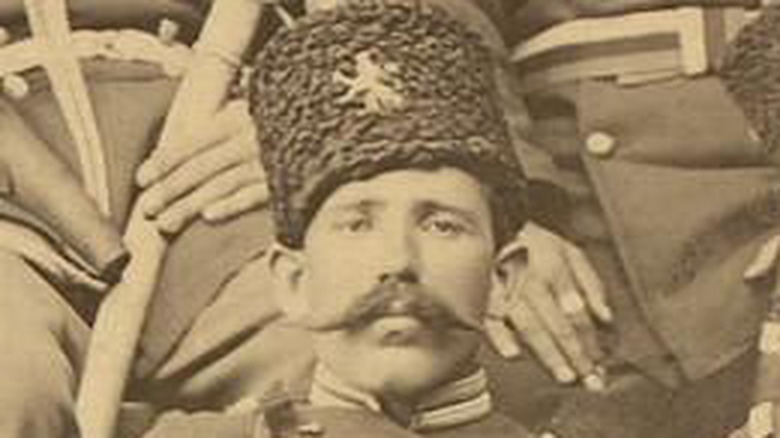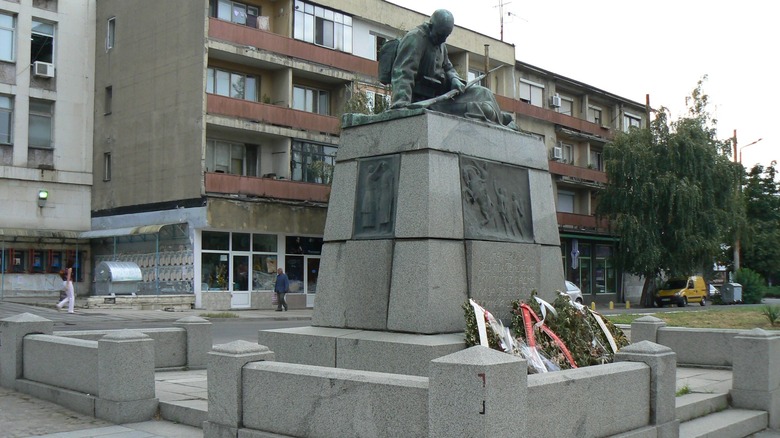What You Should Know About The Serbo-Bulgarian War
Short wars aren't necessarily any less savage than long conflicts, or any less shocking in retrospect. Of course, short typically means there's less time for bloodshed, and fewer people are killed, but not always. Individual battles can have horrendous casualties, like Gettysburg in the U.S. Civil War, which claimed about 50,000 lives in three days, per History Net. Other entire wars, like the Serbo-Bulgarian War in 1885, lasted only 14 days, but cost 9,000 lives, as "War in the Balkans" states.
To understand the war, we need a crash course in late 19th-century geopolitics, particularly the Ottoman Empire. (This stuff gets complicated — be prepared.) The Ottoman empire (1299-1922) centered on modern-day Turkey, connecting East and West, but at its height spreading through Algeria in Northern Africa, down to the top of Saudi Arabia, and up through Ukraine, Serbia, and Hungary. They'd been on the decline since the 17th century, as National Geographic explains, and abutted the Habsburg dynasty (1526-1914) to the west in the Balkans, who more or less united the regional Slavic states (Hungary, Croatia, Slovakia, and so on) under the Austrian Empire (1804-1867). The Austrian Empire, which renamed itself the Austro-Hungary Empire (1867-1918) to, basically, mollify the Kingdom of Hungary, as Visiting Vienna tells us, was a major player in World War I (1914-1918), along with the Ottoman Empire.
And right between the Ottomans and the Austro-Hungarians? Serbia and Bulgaria, who got caught up in the machinations of greater powers.
A short-lived border war following on the heels of a treaty
At its heart, the Serbo-Bulgarian War of 1885 was a border dispute, and arose from the Congress of Berlin in 1878, as Britannica explains, a treaty overseen by German chancellor Otto von Bismarck, and including the Austro-Hungarian Empire (who wanted power in the Balkans), the British Empire (who wanted the Ottomans in power to keep Russia in check), the Ottomans themselves, and the Russians, who'd just attacked the Ottomans the year prior in 1877 during the Russo-Turkish War. Why? They'd smelled blood and went through Bulgaria to get to the Ottomans, per Britannica. The Congress of Berlin released Serbia from the Ottomans and also placed their neighbors, the Bulgarians, under Russian protection.
Lo and behold, not every country agreed on their borders, particularly Serbia and Bulgaria. Part of Bulgaria — Eastern Rumelia, which had been given back to the Ottomans in the treaty — decided to declare themselves a part of Bulgaria again. Serbia, as Britannica explains, wasn't happy with this strengthening of their neighbor, and demanded that Bulgaria hand over some land to them. Naturally, the Bulgarians said "no," and soon there was fighting and death. Things were worse because of the nationalistic fervor driving the conflict, which started on November 13 when the Serbian army crossed into Bulgaria to converge on its capital, Sofia, as "War in the Balkans" says.
By November 28, 6,800 Serbians were dead, and 2,300 Bulgarians. The fighting only stopped because Austro-Hungary threatened to intervene.

